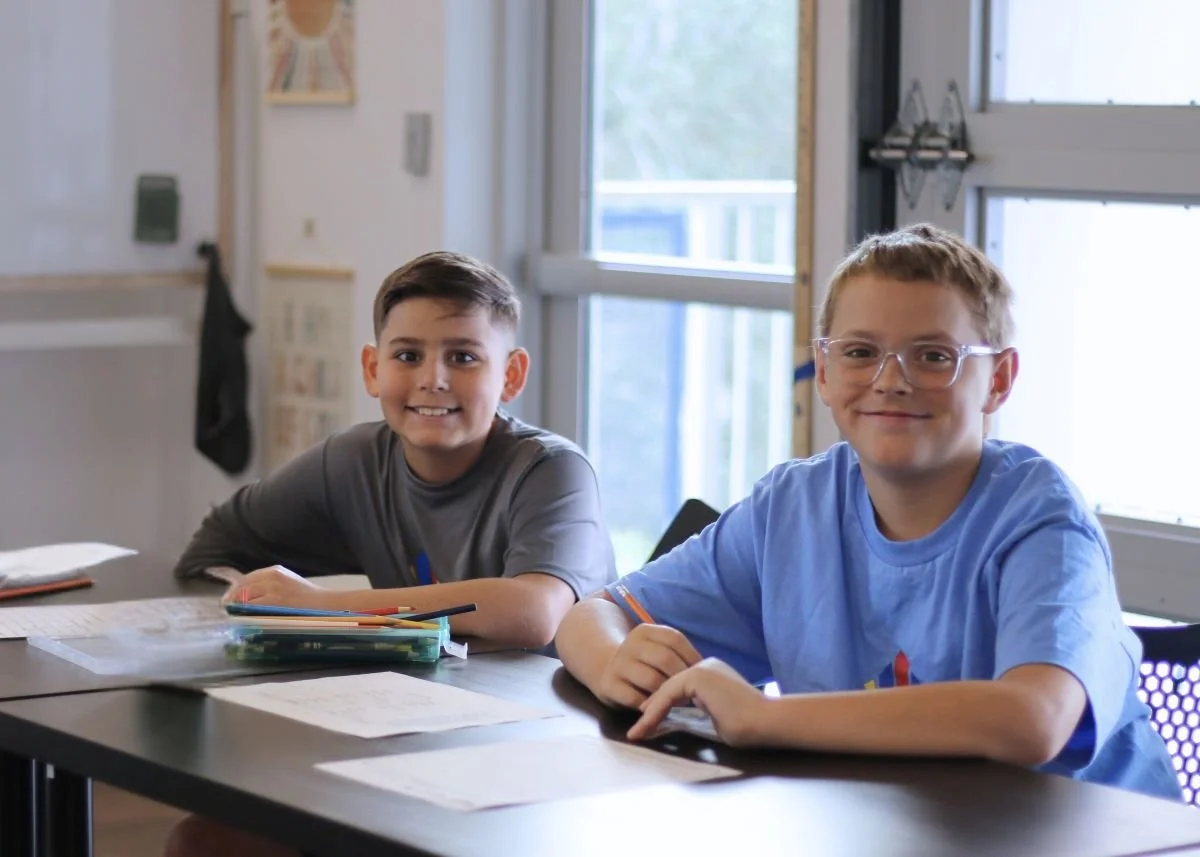Purposeful Homework for Student Success
At Educational Pathways Academy, a private school for dyslexia and learning disabilities in Florida, we understand that students with learning differences need thoughtful, targeted support to succeed. That’s why our homework program is built around the 3R Framework: Review, Reinforce, and Responsibility. This approach is designed to deepen learning, strengthen executive functioning skills, and foster independence.
Review & Reinforce: How Homework Supports Mastery
Each week, our expert educators use evidence-based, multisensory strategies in the classroom to introduce and practice new skills tailored to each student’s needs. Homework extends this learning by providing carefully planned review and reinforcement opportunities, rather than busy work. Assignments are predictable and purposeful—typically one per subject per week—and designed to solidify skills taught in class. For example, math homework systematically reviews previously learned concepts, while reading assignments focus on fluency and vocabulary through Orton-Gillingham passages.
This consistent practice is vital for students with learning differences, helping them move skills into long-term memory and gain confidence in their abilities. It also eases frustration by reinforcing what was taught during the week in manageable ways.
Responsibility: How Homework Builds Executive Functioning
Homework at EPA also plays a crucial role in developing executive functioning skills, which are the mental processes that help students with planning, organization, time management, and self-monitoring. Many students with learning differences experience challenges in these areas, known as executive dysfunction, which can make it hard to keep track of assignments, prioritize tasks, and manage deadlines.
To support these skills, every student receives a distinct red homework folder each Monday. This folder is specially designed to be easy to recognize and difficult to misplace, helping students keep all their assignments, important papers, and resources in one place. The folder also includes important login information for the technology tools used at school, providing quick access to digital supports. For high school students, we use a binder system that organizes homework by subject, teaching them how to categorize and manage materials effectively.
Having a consistent, organized place for homework helps students build the habits of planning and prioritizing tasks, which are key components of executive functioning. This structure reduces student frustration and the sense of being overwhelmed by breaking down the homework process into manageable steps and encourages students to take ownership of their learning.
Tips for Supporting Homework at Home
When families and educators work together, students with learning differences can achieve lasting success. By supporting the skills your child is learning at school through EPA’s 3R Homework Framework at home, you help build a strong foundation of growth, resilience, and confidence—one week, one skill, and one confident step at a time!
Here are some helpful homework tips to support your child’s growth and success at home:
Create a Distraction-Free Workspace: A consistent, quiet area helps your child focus and signals that it’s time to work.
Set a Regular Homework Time: A predictable routine minimizes procrastination and builds time management skills.
Review the Week Together: Look over what’s due at the beginning and end of the week to support planning and prioritizing.
Break Tasks into Smaller Steps: Large assignments can feel overwhelming; tackling one step at a time makes them manageable. Encourage your child to spread the work out over several days and focus on completing just one part at a time.
Use a Visual Checklist: Help your child list tasks and check them off as they go to build a sense of accomplishment.
Try Timers for Work and Breaks: Use short, focused work sessions (like 20–30 minutes) followed by quick brain breaks (5–10 minutes) to help maintain focus and motivation. Breaks can include stretching, grabbing a snack, or taking a short walk—anything that helps reset and refresh the brain.
Celebrate Progress: Praise effort and small wins to boost your child’s confidence and sense of independence in their learning.



